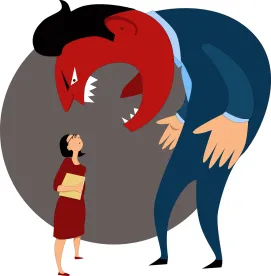The Puerto Rico Legislature has considered bills on anti-bullying requirements in the workplace over the last decade. None of these bills have become law. That could change soon. Both the House of Representatives and the Senate are considering House Bill 306. The bill was introduced on January 2, 2017, and had been dormant until June 25, 2020, when the House approved it. On July 24, 2020, the Senate approved House Bill 306, with some amendments that will need to be considered by the House.
If House Bill 306 is approved, employees in the public and private sector will have a cause of action for conduct the bill classifies as workplace bullying. Aggrieved employees would be entitled to remedies greater than those under local anti-discrimination statutes.
In addition, government and private sector employers, among others, would be required to adopt policies and protocols advising employees about their rights under House Bill 306. Employers must prohibit all forms of harassment and bullying in workplace and provide mechanisms to address and investigate internal allegations.
House Bill 306 goes as far as providing that the immunity for workplace injuries will not apply when it is determined that the condition suffered by the employee was prompted by a pattern of workplace harassment. House Bill 306 is unclear on which entity (i.e., a court or the State Insurance Fund) will make that determination for purposes of the bill. However, once that determination is made, the State Insurance Fund will have a cause of action against an employer to recover expenses incurred in providing treatment to the employee.
Even though the Puerto Rico Unjust Dismissal statute, Act 80-1976, recognizes a cause of action for constructive discharge when an employee is subject to arbitrary, unreasonable, and capricious actions of the employer that cause a hostile work environment, employees do not have to resign to be covered under House Bill 306.
The bill provides examples of what will be considered unlawful harassment, and it requires that the totality of the circumstances be considered. In general, the prohibited conduct is defined broadly as malicious conduct that is unwanted, repetitive and abusive, arbitrary, unreasonable or capricious, not related to legitimate business interests, and that infringes on constitutionally protected rights, such as the protection against attacks to the employee’s reputation or private life, among others. The prohibited conduct can be verbal, written, or physical. Some of the examples provided in the bill range from disregarding, in a humiliating way, an employee’s work-related opinions or ideas to imposing multiple disciplinary actions that are determined to be reckless.
Finally, House Bill 306 recognizes that opposing, denouncing, or participating in investigations related to workplace bullying will be considered protected activity under the Puerto Rico Anti-Retaliation statute, Act 115-1991.
Currently, some employers’ associations are trying to convince the government to revisit the scope of the bill.
If the bill is approved, employers may need to revise policies and provide extensive training to managers and supervisors to reduce risks. Please contact a Jackson Lewis attorney with any questions about the bill or on harassment policies, training for management and employees, and other preventive practices.






 />i
/>i

